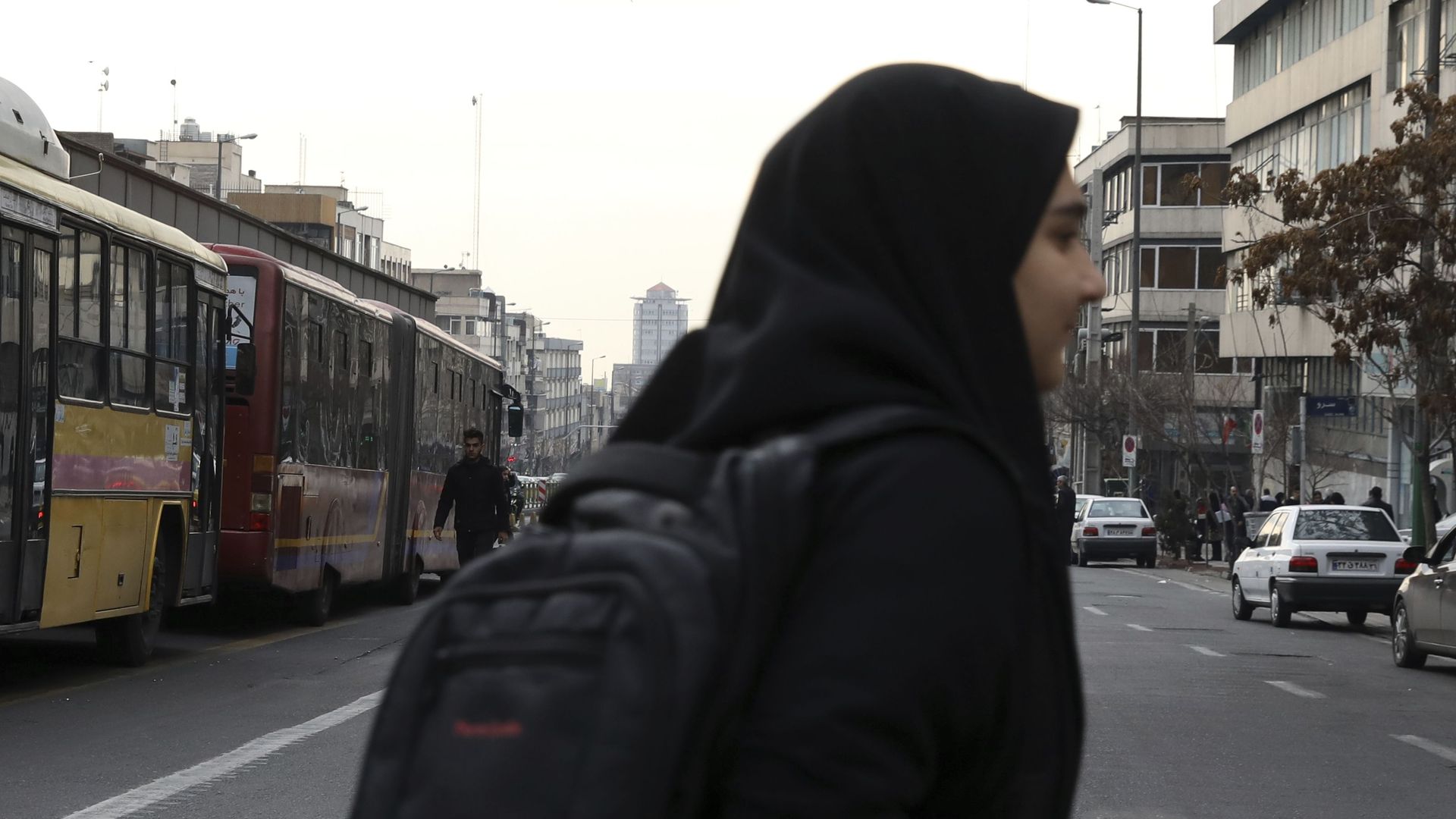Pivot to confrontation with Iran
Add Axios as your preferred source to
see more of our stories on Google.

This billboard in Tehran says in Persian: "Martyr Hajj Qasem Soleimani." Photo: Vahid Salemi/AP
In authorizing the targeted killing of top Iranian general Qasem Soleimani, President Trump chose his lifetime instinct for projecting strength over his vocal aversion to foreign intervention.
What he's saying: "Soleimani was plotting imminent and sinister attacks on American diplomats and military personnel, but we caught him in the act and terminated him," Trump said at Mar-a-Lago.
- "Soleimani made the death of innocent people his sick passion."
What's next: Leon Panetta — former CIA director, Secretary of Defense and White House chief of staff — told CNN's Wolf Blitzer that the U.S. is "closer to war with Iran than we’ve been in the last 40 years," and warned of a "cycle of violence that ... could take us to war."
- "[T]he Iranians are going to plan, without question, an attack on either U.S. forces or U.S. bases either through their proxies or ... directly," Panetta said.
- "We have a lot of troops stationed in the Middle East. We have a lot of targets that the Iranians could go after."
Behind the scenes: Secretary of State Mike Pompeo, Secretary of Defense Mark Esper and Gen. Mark Milley, chairman of the Joint Chiefs of Staff, "had gone to Palm Beach to brief Trump on airstrikes the Pentagon had just carried out in Iraq and Syria against Iranian-sponsored Shiite militia groups," the L.A. Times' David Cloud reports.
- "One briefing slide ... listed several follow-up steps the U.S. could take, among them targeting Suleimani ... Unexpectedly, Trump chose that option."
In discussions that began over the weekend, officials "reminded Trump that after the Iranians mined ships, downed the U.S. drone and allegedly attacked a Saudi oil facility, he hadn’t responded," the WashPost reports (subscription).
- Trump was motivated partly "by what he felt was negative coverage after his 2019 decision to call off the airstrike after Iran downed the U.S. surveillance drone."
- "Trump was also frustrated that the details of his internal deliberations had leaked out and felt he looked weak."
The big picture: "The U.S. drone strike ... marks a pivot toward direct confrontation with Iran, further entangling the U.S. in the Middle East after years of trying to avoid a major conflict," The Wall Street Journal reports (subscription).
- "With Islamic State seemingly routed in Iraq and Syria, and Tehran lashing out in the face of a deteriorating economy, the U.S. and Iran [are vying to] shape the ragged peace in an unsteady part of the world.”
Go deeper:
